Church Planters X-CHANGE Seminar in Riga
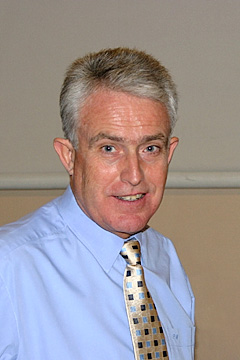
Riga, LATVIA. [BAUC News] — More than one hundred Church Planters have come together in Riga, Latvia, to share their experiences and learn new ways of sharing their faith with secular people. The meetings have been organised by the Baltic Union Conference and Peter Roennfeldt, Ministerial & Global Mission Director at the Trans-European Division. He’s also coordinator of the church planting program. We asked him to introduce Church Planting and to explain the purpose of this X-Change meeting.
— What is a Church Planters X-Change?
— A Church Planters X-Change is a training program, for church pastors and teams of church planters. We’ve invited all pastors who want to be involved, who want to bring a team of people, who will actually plan a church plant. During X-change we also invite church planters from other places — so we have a church planting team from London and one from Helsinki. They exchange ideas with church pastors and church planting teams from the Baltic countries.
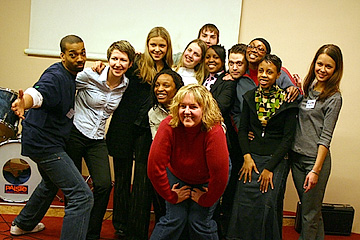
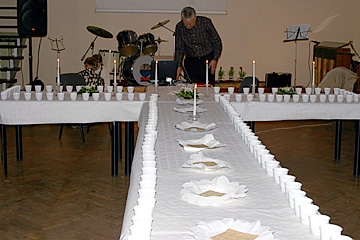
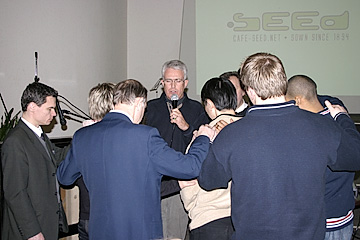
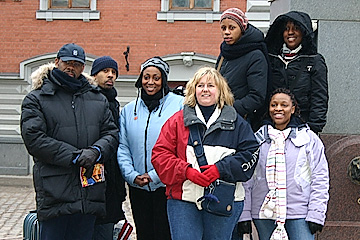
— Who are church planters?
— The church planters include teams of pastors and members. It is very important that we keep establishing new churches so is to reach new groups of people. No one church can reach every person in a city or a town. And so we’ve found that if we have many new groups and many new church plants, we can reach new groups of people. We want to establish proper, viable Adventist churches through the work of church planters, so church planters look at the whole project plan: what evangelistic methods they are going to use, how they are going to establish a church over a period of years, and how they will grow that church. We look at every method, including a lot of new methods, as to how we will do this work.
— What are objectives of this course?
— The objectives of this X-Change programme are quite simple — to inspire people with church planting and to train groups of people to start new churches in specific places. So a team may be made up of four to ten people who are committed to starting a new church plant in a new area of a city or an unentered town. It is both to inspire as well as to actually prepare a church planting project plan. So it’s not just talk, it’s actual hard-work, getting a plan organised.
— Are all church planters volunteers?
— Of course, some Church Planters are pastors. A pastor may get a team of people together and they will plant a church. In other cases church planters are church members. Both pastors and members are involved.
— Church planting is possibly the most effective method of outreach. We ask every team of church planters to work with their Conference administration to plan the projects, so we don’t want to encourage anybody just to go and start their own thing. This is not an independent organisation. All work with their Conference administrations and their district leaders to establish a new church plant.
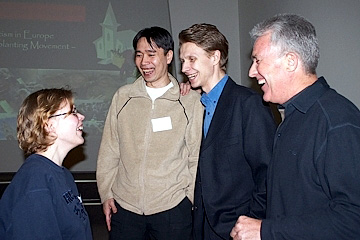
— Yes, we now have about one hundred church plants that have started in western and northern European countries — and we seeing more and more church plants in other places. At the Baltic Church Planters X-Change this week we have with us a team from Finnish Union, from Helsinki, and with them is Atte Helminen who is the new Finnish Union president. Atte is a church planter and he has been working in Helsinki for some years to plant three Café-SEED churches and to support the planting of three other main churches in Helsinki as well as small groups. So they are working to increase the number of churches in Helsinki. A city such as Riga, for example, could easily have one hundred Adventist churches and still not everybody would have heard of our message, so we need many, many more church plants.
— Often we’ve been told that secular people are no longer interested in religion anymore. Can you say that this program is attracting people?
— Yes, I think that we can attract people to our message, but we may need to think about the process in a different way. People may not be as ready to come to a series of Bible meetings straight away, but if we build friendships with people, and if we establish initiatives and plans in a community to really meet the needs of people (not the needs that we think they have — but the needs that the people really have), we will trust.
— Friendships and relationships will grow, and then we will also have opportunities to share the Word of God, both in small groups, in workshops, and also in preaching in the new churches So it’s another way of reaching the community.
— Recently the Adventist Church launched its own global satellite-TV program “Hope Channel”. Is there any relationship between LIFEdevelopment.info program which is broadcasted by “Hope Channel” and Church Planters X-Change program?
— There is very close connection between our support at the Trans-European Division for the “Hope Channel” Adventist Television program, LIFEdevelopment.info and church planting.
— LIFEdevelopment.info program is a process of working with people. The first stage of the process is to build relationships; we call it “Getting connected” — to build friendships, to get involved in the lives of people, and to really be part of the community. The second step in this process is called “Evidence” — this is when we invite the people into our homes to watch satellite program on the Adventist “Hope Channel”, and then we have discussion on that topic that is shared. Then the next step in the process is going to be “Mind the Gap” — which will introduce a little more Bible to people. There is seven step process behind LIFEdevelopment.info. This process is closely tied with the kinds of strategies that many church plants have established. We first mingle with people — or get connected with people. We build friendships in the community, and then we have the opportunity of sharing with those people a little bit of who we are, and what we stand for, and then as time goes on, these people want to know more and more of what we believe. So we have strongly promoted LIFEdevelopment.info as part of the church planting initiative in the Trans-European Division.
Guntis Bukalders,
Baltic Union Conference Communication Director